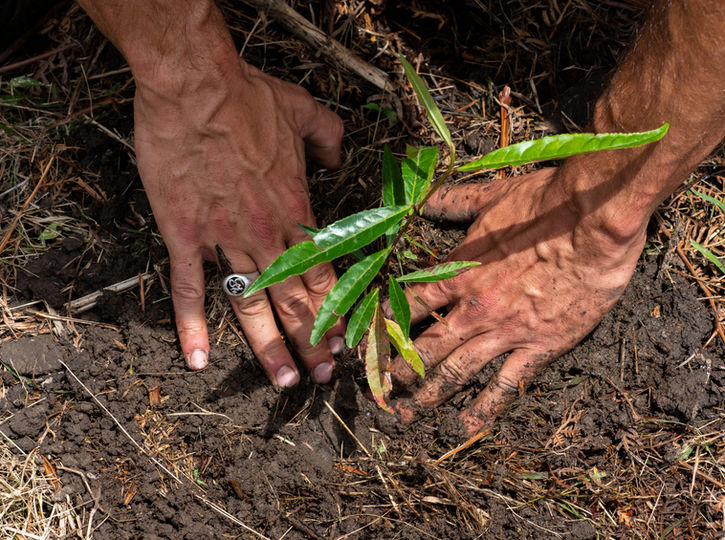top of page
Tree planting
Tree planting is our primary activity in Australia. We reforest cleared land primarily in Northern New South Wales, supporting biodiversity and long-term forest survival. We have also established our Enrichment program, generously funded by FAME, to boost biodiversity in existing plantings and recover damaged forests.
We grow trees in our nursery in Mullumbimby and give a high priority to endangered and critically endangered species as well as those that support native fauna.
Trees sequester carbon, provide habitat and food, and stabilise the soil.
Our dense planting technique brings back wildlife with complex ecosystems quickly.

1.5m spacing
4,356 trees/ha
up to 233 species
~ 750t CO2 stored/ha
Our planting process

We choose the species for each site specifically to suit the micro climate and variables of the site. Our nursery in Mullumbimby in NSW is a key part of our work, housing 130,000 trees per year. In addition, we purchase trees from nearby nurseries to ensure we have enough supply for our plantings.

On the planting day, our auger team will be drilling up to 5000 holes for the trees.

After holes are drilled, we put water crystals into those. These crystals are soaked in litres of water to swell into a jelly that holds water for weeks on end and will give the plant a long-term drip feed of water. Every time it rains, the crystals will absorb water and hold it for the trees, rather than letting it drain away.

After holes are drilled and water crystals are installed into the holes, the trees that are funded will be planted.
We welcome volunteers who can register via the button below.

After trees are planted, we will install fertiliser to encourage their growth.
.jpg)
We offer various maintenance agreements. We handle tree care in some locations, while landholders are responsible in others. Trees are densely planted (1.4-1.8 meter spacing) for quicker canopy formation. Within approximately 3 years, the canopy closes, making it difficult for grasses and weeds to compete and allowing the ecosystem to fully restore itself.
bottom of page
















